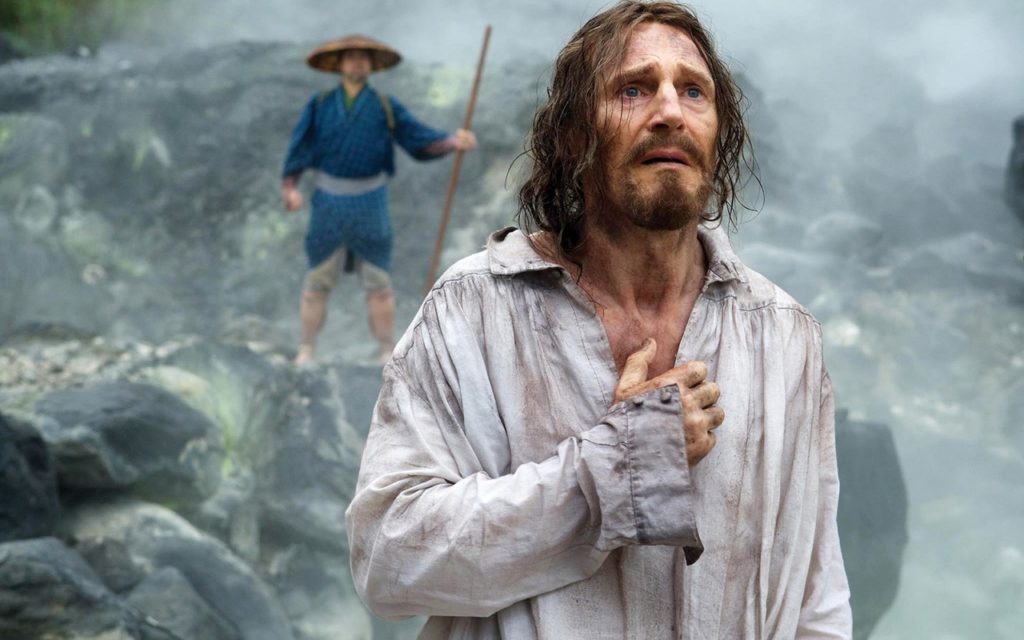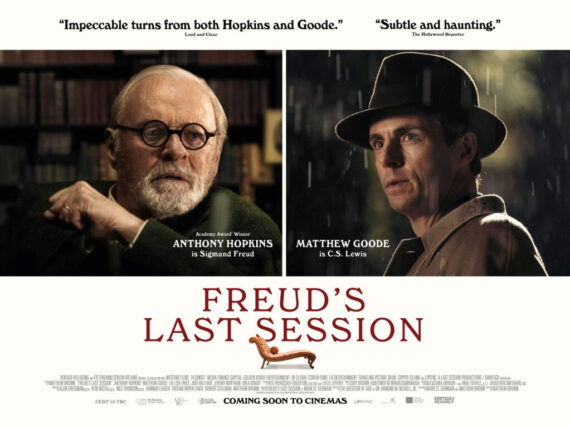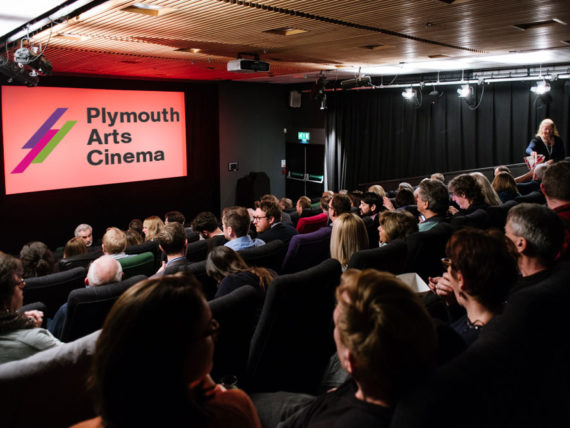Ieuan Jones has written a review of Silence, which is screening at Plymouth Arts Centre from 10th – 16th February. Tickets available here.
No matter what the subject matter, Martin Scorsese is always able to find a religious dimension to the films he is making. This mind-set is largely down to his upbringing, which was strict Catholic (before directing he wanted to train as a priest). Even his last film, The Wolf of Wall Street (2013), ingeniously depicted a modern day Sodom and Gomorrah in the manner of one of his gangster flicks, with Scorsese inviting us to judge its characters accordingly. Some were appalled by them but, tellingly, many more were seduced.
Scorsese’s latest film, Silence, is a much more overtly religious story than that. Adapted from the novel by Shūsaku Endō, it is set in the seventeenth century and concerns two Jesuit priests (Andrew Garfield and Adam Driver) who leave their native Portugal for Japan. This is because they have received a letter revealing their mentor (Liam Neeson) may have gone native and given up the faith, so they resolve to track him down.
The Japan they encounter is a very hostile environment. The Christians there live in fear. The local Shogun (or “Inquisitor” – perhaps a deliberate mistranslation) is only too happy to have them killed for turning away from their national religion of Buddhism, though not before using them as an example to others. In one extraordinary scene, some local villagers who have been “outed” through their association with the Jesuits, are hung from crosses on the shoreline. It is not the quick death of the crucified Jesus they are made to endure, but the slow agony of the sea creeping towards them before it swallows them whole.
The “silence” of the title is the silence of God, particularly when it comes to the suffering of His followers. It is the struggle to understand how God can sit quiet in the face of such persecution that provides the ultimate test of the priests’ own faith, while on the road to discovering how the same could have happened to the very man that taught them to believe. Through a simple revelation near the film’s end, we also learn that the silence could also be that of the oppressed, forced to keep their belief concealed yet never able to relent.
The trials and torments of Christians in Edo-era Japan is not exactly the easiest sell in the world. Yet Scorsese is a master filmmaker and there are signs of his mastery throughout Silence – if anyone is going to be able to turn the crisis of belief of a Jesuit in a foreign land into a proper nail-biter it’s him. The performances (and impeccable hair) of the actors are commendable – with particular praise due to Liam Neeson who, fittingly, carries off the worldliness of his character as much by gesture as words. It is easy to forget in the bluster of his endless Taken sequels how talented an actor has been hiding away.
Ieuan Jones is a freelance writer working and living in Plymouth.









Comments
Comments are closed.